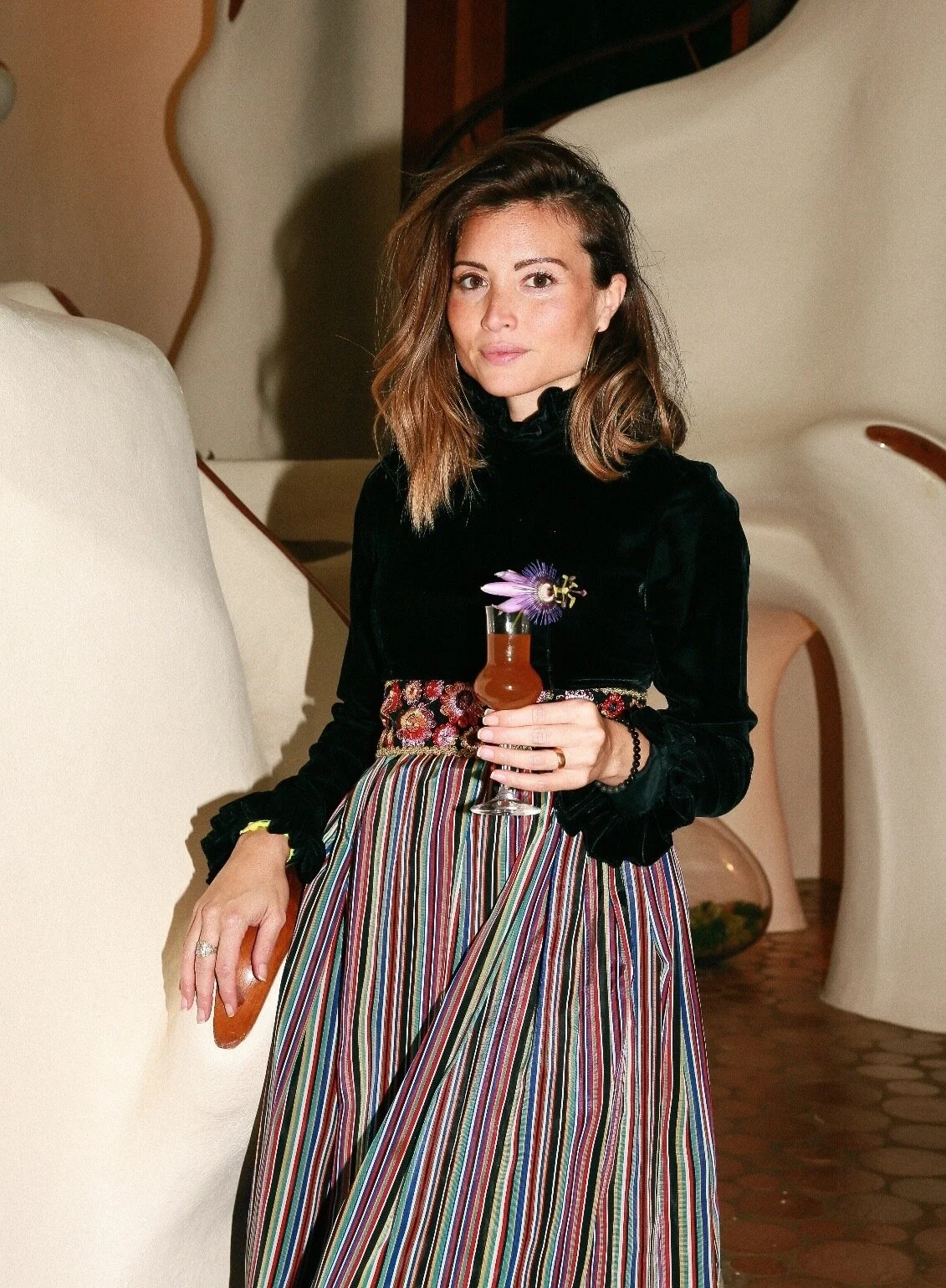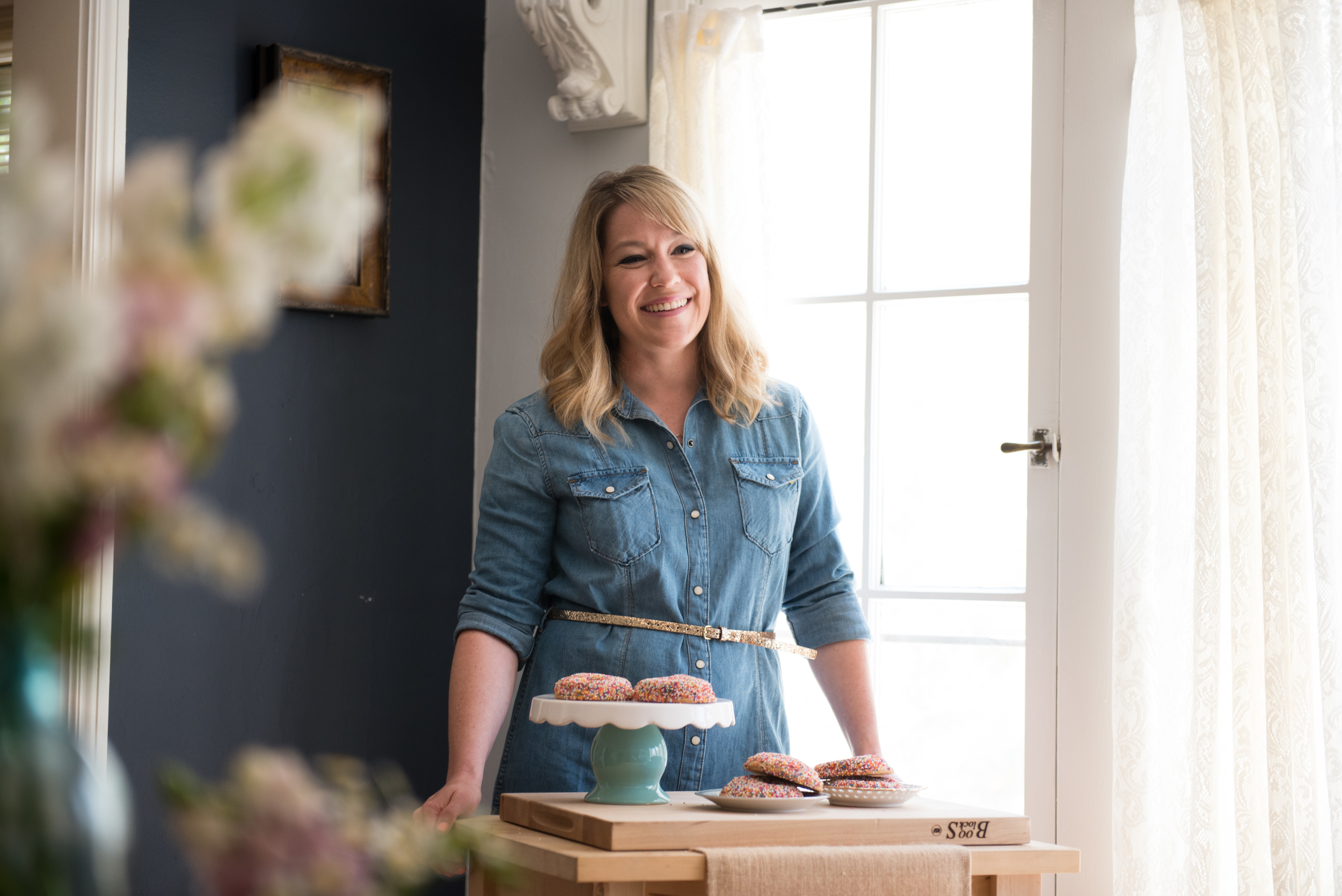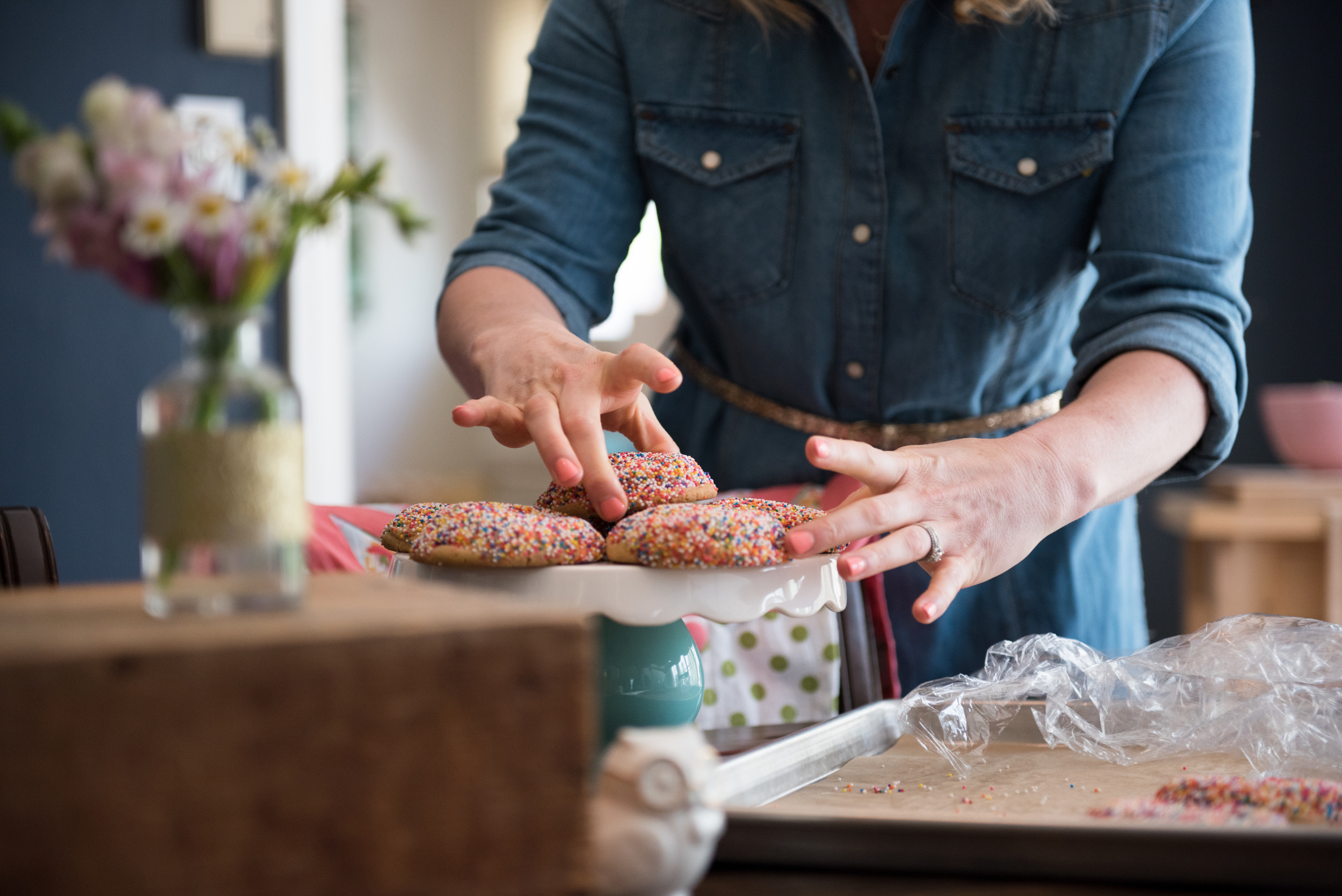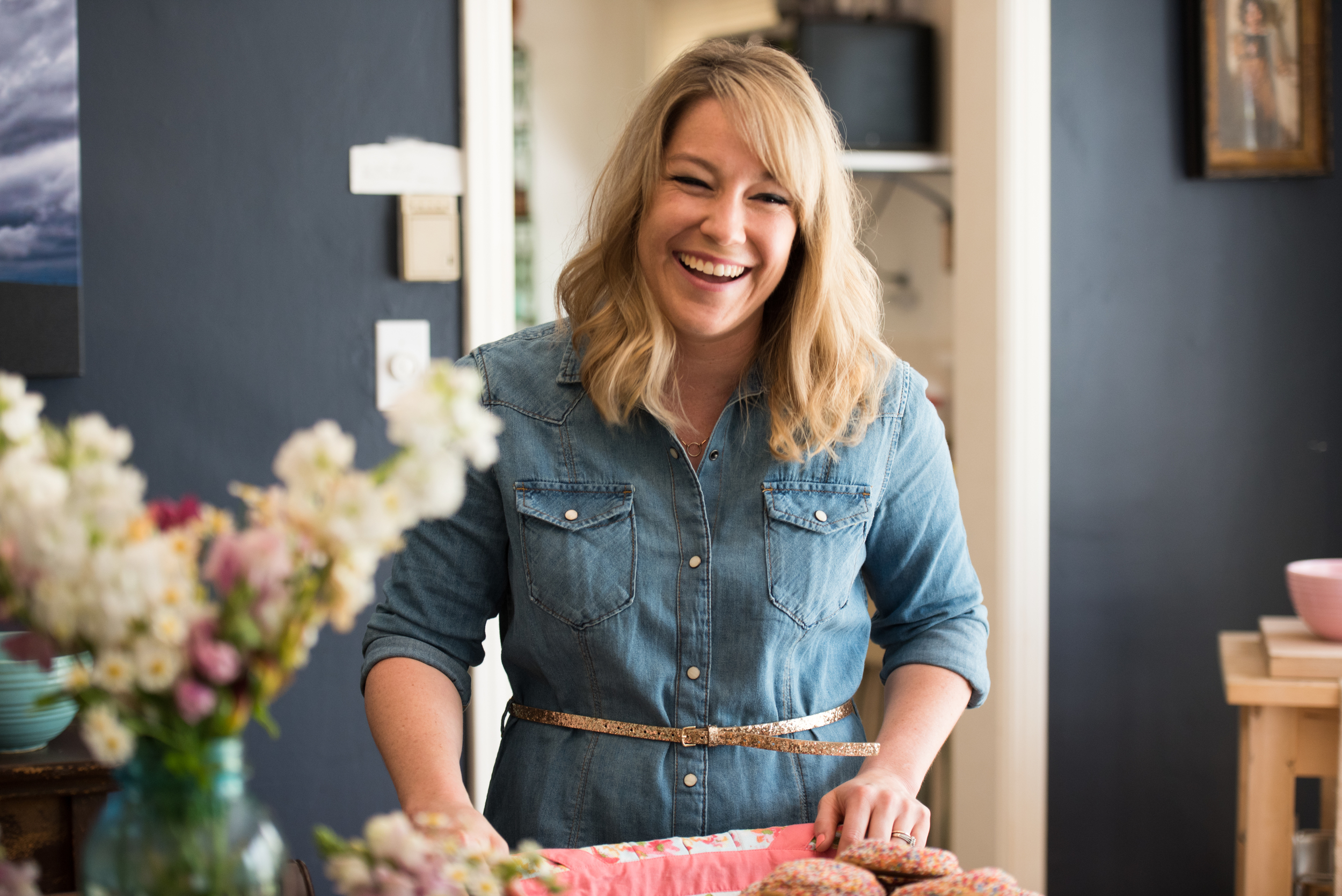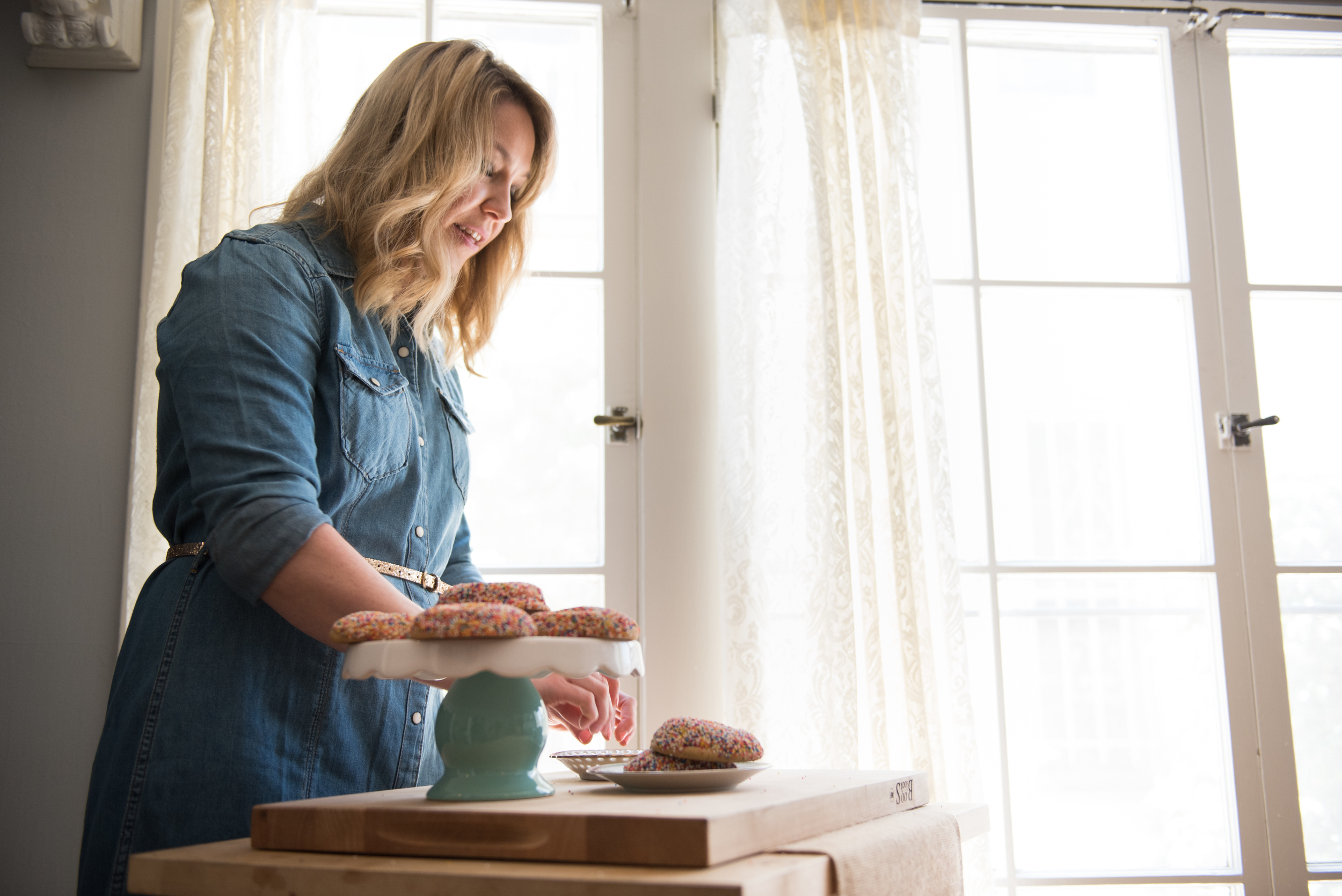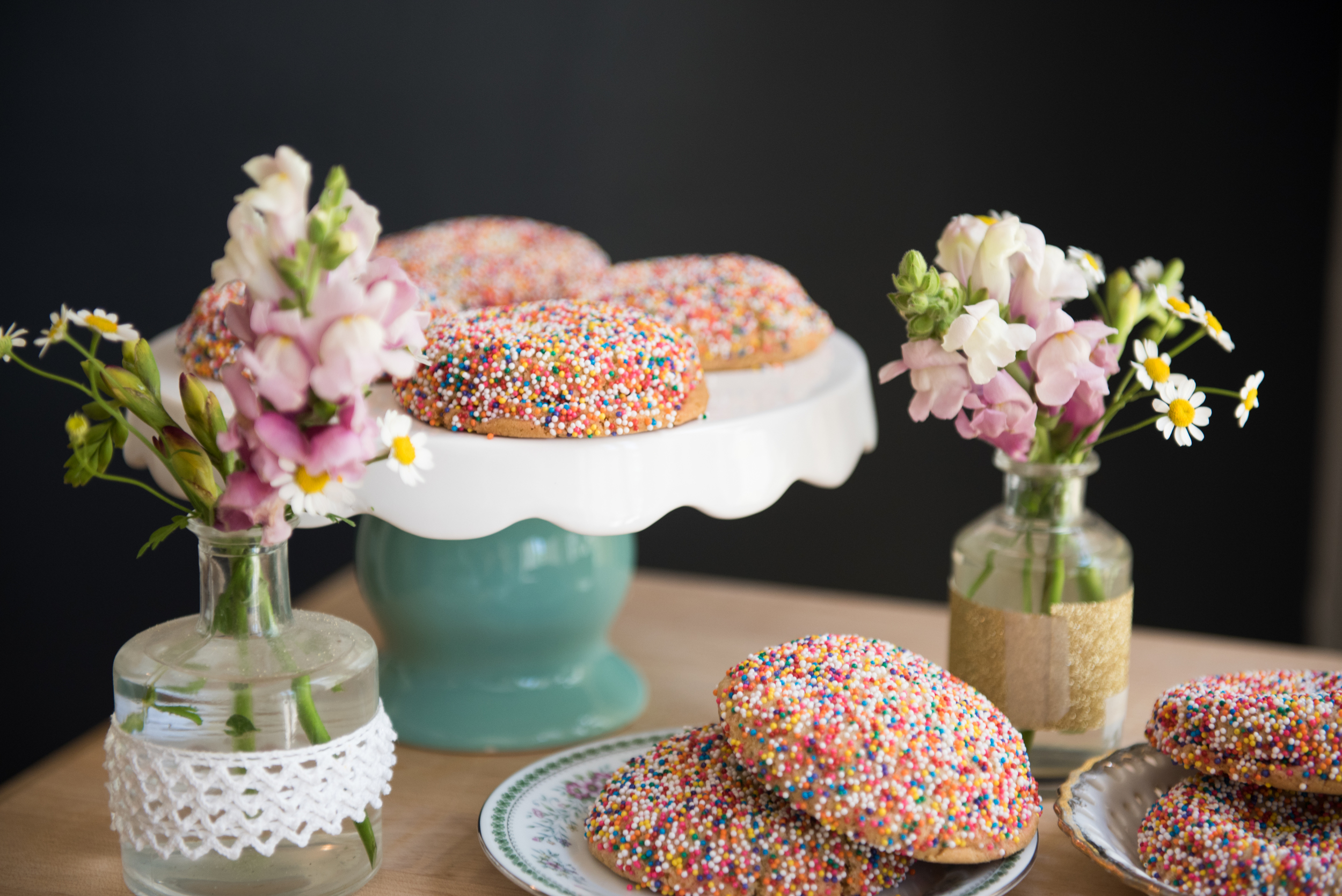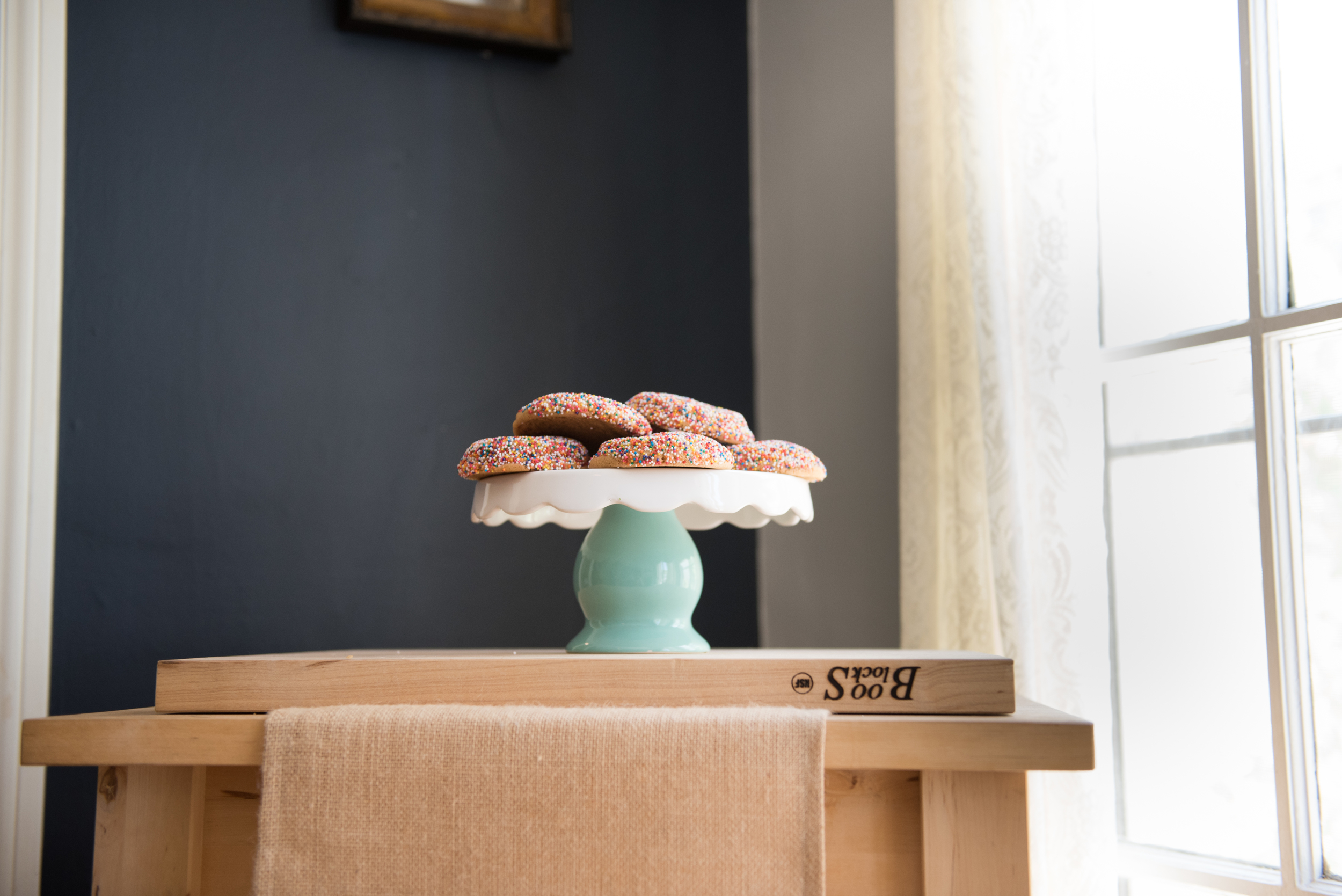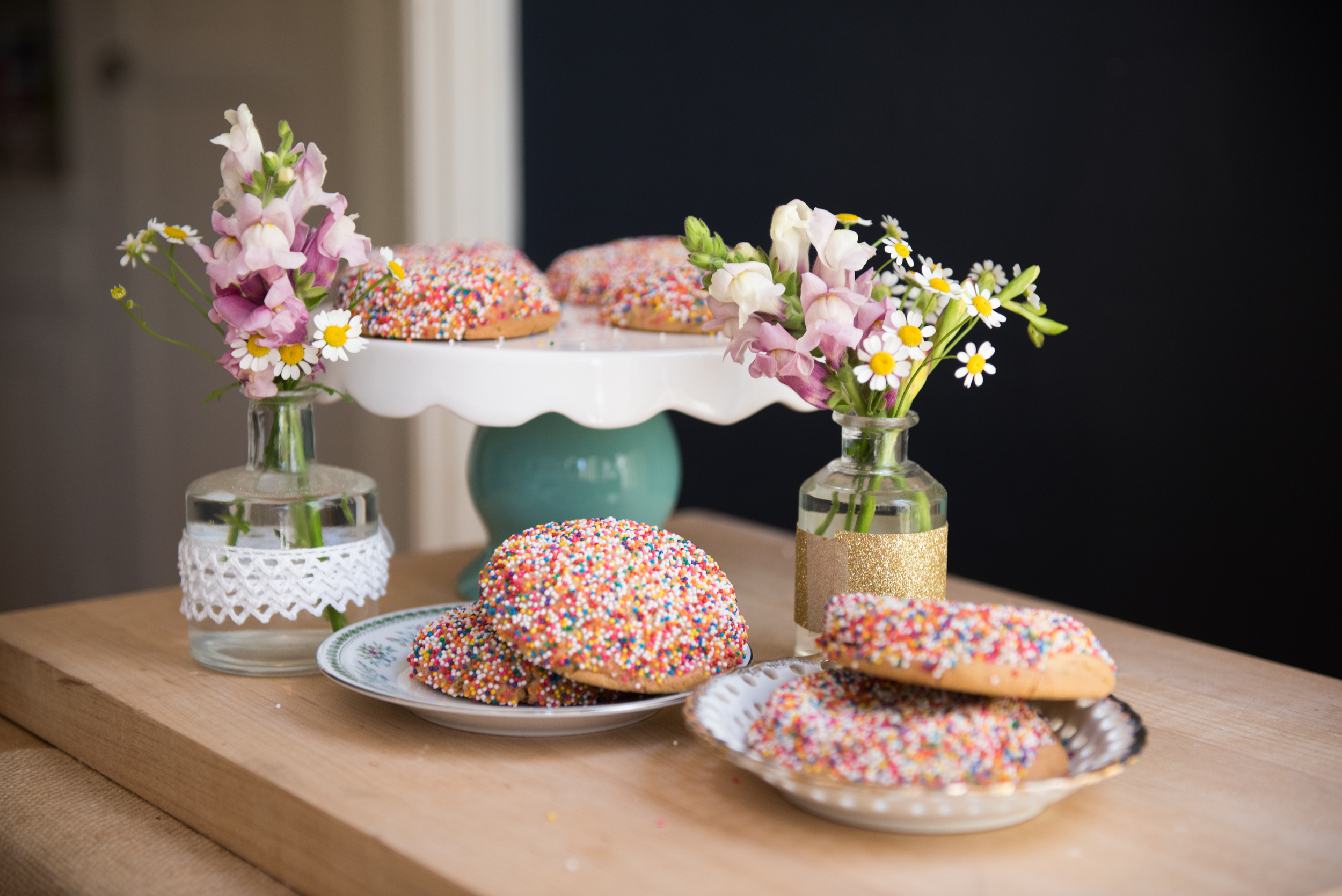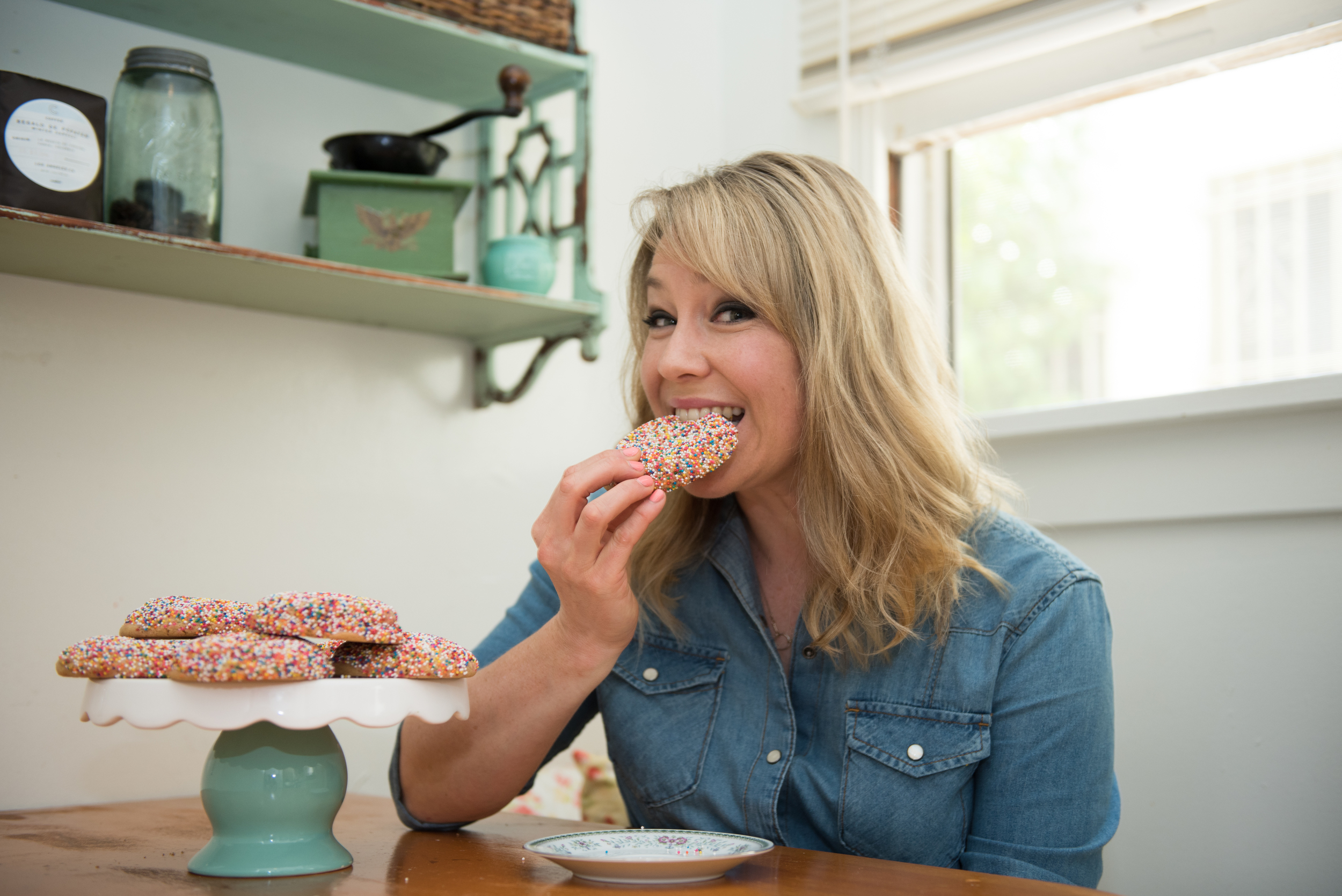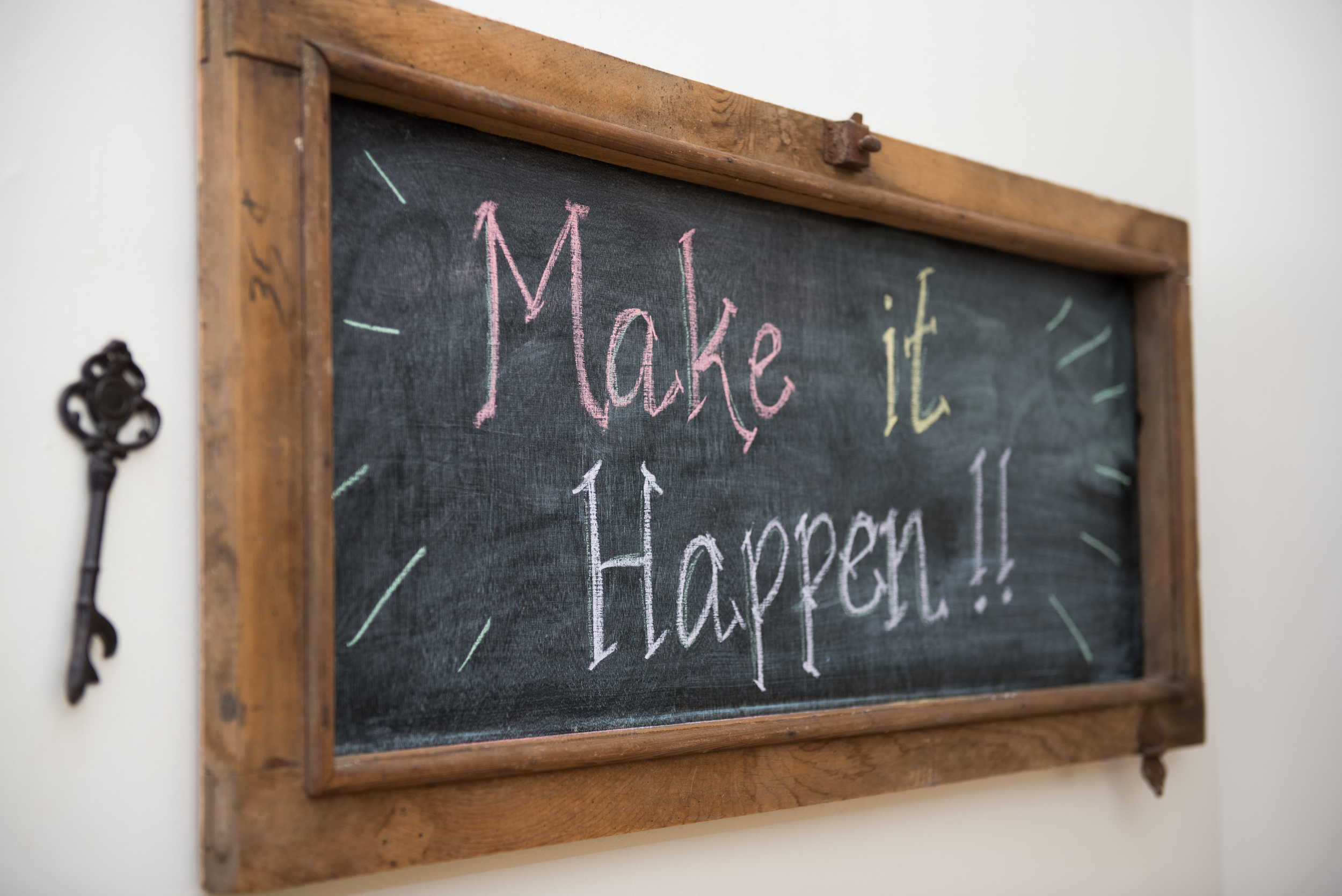"Confidence Gets Checks Signed"—Why This Founder Wants You to Have a 3-Year Plan for Your Business
Kin founder Jen Batchelor gets real about raising money, partnering with the right investors, and running a successful business.
You asked for more content around business finances, so we’re delivering. Welcome to Money Matters where we give you an inside look at the pocketbooks of CEOs and entrepreneurs. In this series, you’ll learn what successful women in business spend on office spaces and employee salaries, how they knew it was time to hire someone to manage their finances, and their best advice for talking about money.
Photo: Courtesy of Jen Batchelor
Jen Batchelor knows a thing or two about pitching to investors. Since launching Kin, a beverage company that’s reinventing booze-free imbibing with potent blends of adaptogens, nootropics, and botanicals, the founder has raised over $5 million in funding from venture capital firms, such as Refactor Capital, Canaan (which has also backed startups by the likes of Bird, Cuyana, Instacart, and The RealReal), and Fifty Years. But before she started fundraising, she went the self-funded route—for two crucial reasons.
“I really didn’t want to launch this business—or waste other people’s money trying—until I knew our approach to [producing an alternative to alcohol that preserves the positive effects of having a drink] was something that, one, was a sustainable solution and, two, was something the world actually wanted,” Batchelor tells Create & Cultivate. It’s an approach that involved a longer timeline—and a bit of bootstrapping—but it’s safe to say it paid off in the end. “We gave ourselves 12 months to develop a minimum viable product and beta-taste it to over 3,500 people. It ended up taking nine months to make up our minds and then two seconds for our first investors to say, ‘Yes.’”
Ahead, we chat with Batchelor about how she took her business from a self-funded startup to a venture-capital-backed company, including the money mistakes she’s made along the way and her best advice for founders on partnering with the right investors.
Take us back to the beginning. What was the lightbulb moment for Kin? What inspired you to launch your business and pursue this path?
Well, as there usually are with honest assessments of the self, it took multiple lightbulbs to get me to wake up. In fact, it took about the tenth one to finally push me from fear to faith. Ultimately, I noticed that after college, my friends and I never really slowed down our alcohol consumption, we just bought more expensive booze—which we thought elevated or justified our drinking somehow. As wellness became a bigger part of our collective routines and we all got smarter about our careers and fertility goals, we realized even the most expensive champagne couldn’t save us from the precious time (and collagen) alcohol was robbing us of every week, no matter how much OJ was in it! When I started going through the scientific research and assessing all the things I was potentially compromising in my life even with just a few drinks a week, the most surprising of them all was my cognitive ability. My brain was my instrument and my time was a currency in the age of freelancing and entrepreneurship, so it finally got to the point where I had to admit that the costs of my social habits were too great a debt to bear while going after my dream goals.
You self-funded Kin for the first year, but you've since brought on investors such as Refactor Capital, Canaan, and Fifty Years. Why did you pursue a self-funded strategy initially, and why have you sought out investors over time? Would you recommend that route to new entrepreneurs today?
I really didn’t want to launch this business—or waste other people’s money trying—until I knew our approach to solving the problem itself was something that 1) was a sustainable solution (it worked and would continue to work in the future) and 2) was something the world actually wanted. We gave ourselves 12 months to develop a minimum viable product and beta-taste it to 3500+ people. It ended up taking nine months to make up our minds and then two seconds for our first investors to say, “Yes.” We knew they were the right folks because they were focused on the future of food and understood we were in this to truly disrupt the 10,000-year-old (read: dated) tradition of drinking ethanol for funsies. The same way they knew the meat industry was unstainable for the planet, they knew ethanol was unsustainable for the people. It was an instant match.
What advice can you share for entrepreneurs on partnering with the right investors? What do investors need to bring to the table other than just money?
This is an important question so I’ll try to do it more than lip service. You really need to know your business and what it needs to be successful in this immediate stage in order to pick great investors for a particular round of financing. It’s like putting a fantasy football team or a great outfit together. You wouldn’t pick your favorite bikini, pair it with your favorite gown and your favorite sneakers and call that date night chic. Start with the intention, know the audience you are trying to serve (a.k.a your best customer now, that may change down the line so spend time doing the research), and then go after investors that can help you reach that customer, help you land that next critical hire, help you troubleshoot potential challenges for the relevant season in your business journey, etc, etc. With all the capital available in the world right now, this is much easier to do than it sounds. Be choosy! The best investors will get the mission and be ready to pull up their sleeves to hustle right alongside you when you really need the support. Whenever possible, bring on a couple of investors that have been owner/operators in companies with growth trajectories and exits you’d like to follow or who have built cultures you admire.
Since launching Kin in 2018, you’ve raised over $5 million in funding from venture capital firms—no doubt you’ve learned a lot along the way. What are three crucial elements everyone should include in a pitch deck when raising money and why?
Your pitch deck will evolve for every season of fundraising you enter. At the onset, it’s important to remember that everyone has an idea worth funding. The question is why are you and this idea a match? What is it that makes you uniquely suited to reach a certain audience? I’ll tell you from experience, it’s not enough to just be “the first” to market. Though it can help with angel funding to be a first-mover, it won’t always get the bigger deals done. You must have a unique strength and competency and a strategy for growth. Secondly, you’ll need a three-year plan to woo the best investors—they need to see a path to profitability even if a lot of it is based on hypotheticals. Third, show any evidence of traction and do it well. Again, social proof around an MVP is going to drive the kind of confidence in you as THE person to lead this concept to success. Confidence gets checks signed. Know your shit.
Where do you think is the most important area for a business owner to focus their financial energy and why?
If I had two dollars, I would spend it on people and customers every time. $1 on my team and $1 learning what makes my guest (customer) tick.
Photo: Courtesy of Kin
What was your first big expense as a business owner and how should small business owners prepare for that now?
People was the first big expense—and still is. Get smart about your org strategy and the incentives you’re going to need to get the right people in the right seats early. Think about things like benefits and stock options before you hire your founding team. Get that squared away and you won’t need to revisit this in year two when you should be focused on scaling. Katrina Lake from StitchFix has a great blueprint for this in terms of hiring your A-team early.
What are your top three largest expenses every month?
People, shipping, and people.
Do you pay yourself, and if so, how did you know what to pay yourself?
Yes. I came into this with a co-founder so we just took the typical founder salary of one founder/CEO and divvied it up based on responsibilities. This didn’t happen till we raised some money, though—before then, the goal was to get to “ramen money”—and now I have a board so it’s evolved into a collaborative effort of incentive setting based on growth and OPEX management goals.
Would you recommend other small business owners pay themselves?
This is a highly individual question based on what gets you up in the morning and what you need to stay creative. If you’re bootstrapping to get your dream off the ground, stay as lean as possible for as long as possible. Stay hungry. Once you have investors though, you start to realize you work for them as much as you work for yourself, so get yourself paid and live in a way that supports your best sleep. No investor wants to see a founder they believe in stressed AF about how they’re going to pay their electricity bill while trying to change the world.
Did you hire an accountant? Who helped you with the financial decisions and setup?
Yes, I had an accounting service from day one and now have an accounting team supporting my head of finance.
What apps or software are you using for finances? What’s worked for you?
Brex is pretty sweet for managing expenses and empowering departments to do what they need to do.
What are some of the tools you use to stay on top of your business financials? What do you recommend for small business owners on a budget?
We run a pretty classic system at Kin. Excel, QuickBooks, and Gusto get us where we need to be on budget management, AP, and people expenses. It also forces upon us a checks-and-balances system that keeps us on our A-game. That said, as a mostly e-comm-driven company that handles the production complexities of our own manufacturing, a stellar inventory management system is also non-negotiable. We just onboarded to Cin7 which is supposed to make this process more centralized and automated but I’ll have to keep you posted on that one as it is still new for us!
How did you know you were ready to hire and what advice can you share on preparing for this stage of your business?
We only hired after we raised money. At that point, the plan was set and we knew we had to get troops in the air and on the ground building and spreading the gospel of Kin as soon as possible. Luckily, the first wave of folks were friends, smart ones, many of whom are still with me today so it wasn’t a hard decision for me to bring them on board, having all the faith and confidence that we could get to where we needed to go collectively. The bigger leap of faith was on them—why should they follow me when they could be working anywhere in the world? Eternally grateful to each of them for leading with faith and jumping in with excitement. The world would be a much boozier, less blissful place without them.
The key with hiring was securing the folks I wanted to work on Kin versus the ones I thought should be working on Kin. Such a subtle difference but the latter hiring decisions, I have found, to be subliminally based on fear. “I should bring on this expert from this big brand because that’s probably smart to do no matter how much they cost” versus “I’m dying to get this person on my team, maybe I can’t put a finger on why but I know their background, talent, core values, and gusto around the mission will yield more than their title suggests.” In short, do your diligence but follow your intuition in the end. Then lead them.
Do you think women should talk about money and business more?
Definitely. Guys talk about this stuff all the time, it’s like a sport. Because of that, they win at it, a lot. I think building your financial acumen is a great way to eliminate black box challenges and be truly fearless in steering your business.
Do you have a financial mentor? Do you think business owners need one?
I have a CEO coach and a management mentor. The latter is someone who has built (and scaled) a culture I admire. Both impact how I think about financial priorities, but I would say the most influential people in my sphere impacting Kin’s financial destiny on the regular is my head of finance and my lead investor. I rely on one to read between the line items of today—how are we trending day-to-day, week-to-week, what can we cut, where can we more efficient? And the other to help me think about structuring the business for the next level of growth.
What money mistakes have you made and learned from along the way?
Most all of my money mistakes have been people-based. This is why “hire slow, fire fast” is one of the most prolific adages of modern entrepreneurship. One dollar in the wrong pocket is not only painful for the bottom line but costly to team morale and productivity. It’s not just exposure in terms of salary, having the wrong person in the wrong seat affects the output of the entire business, especially during earlier stages.
What is your best piece of financial advice for new entrepreneurs?
I’m a big believer in raising a hair less than you think you need. Just because someone is willing to sign over a check for $10 million, if you only need $3, take $2.5 million. Trust me, it will make you a stronger, more creative leader and you’ll leave yourself less exposed to micromanaging or dilution of vision (not to mention, equity!). Otherwise, don’t waste money on consultants and expensive research firms unless the output is a direct input or prerequisite for the product you are building. Even then I would wait. You are the magic sauce, you don’t need to spend $100K for someone to tell you that you know your brand better than anyone. To whit, whatever freelancers you do end up hiring watch for the ye olde SCOPE CREEP! It can eat any small business alive, so please iron out your contracts in advance.
Anything else to add?
Don’t forget that money is purely an exchange of energy. You don’t want to fear it lest it dominate you just as you don’t want to squander it lest it rob you of opportunities. Get cozy with your relationship to money as a whole (what are your limiting beliefs around money? what are your traumas? insecurities? identify black box knowledge areas) so you can work with it in your business life in a fluid and empowering way. Protect your energy but don’t let money rule every decision. You got this.
MORE ON THE BLOG
Find Out Why This CEO Risked All of Her Money
And how it paid off big.
Would you be willing to risk it all for you biz? That's what Aussie expat Koel Thomae, co-founder of Noosa Yoghurt did. And it's a route we hear many entrepreneurs take. As they say, without passion and risk, there is usually no reward.
Thomae, alongside co-founder Colorado dairy farmer Rob Graves, launched Noosa in January 2010, with the idea of bringing the sweet, tangy and full-fat yogurt of Australia to America.
But yoghurt is one the world's oldest man-made foods. So what made Thomae think she could do it better? Considering Noosa was profitable within one year and acquired within four, trusting her tastebuds is only part of the tale.
Hers is an inspiring success story that includes heart, risk, and yes, getting acquired. But even after acquisition, Thomae stayed on in a different role. Read more about her journey below.
As someone who bootstrapped her company, was there a part of you that wanted to see how far you could go on your own? How did you know it was the right time to take on an investor?
Koel Thomae: Absolutely. There was part of me that wanted to defy the normal path that most start-ups take with having to take outside investment. It certainly meant we were risking all of our own money but that made me even more determined to work hard to see this become successful. It also gave us the ultimate autonomy in how we grew the business and even though we certainly had our missteps we defined what success was and could take risks that others might not have had the stomach for. By the end of 2013 we knew we had created a real business with legs and that the growth curve wasn’t slowing. We were running the business incredibly lean on the executive level and knew that to protect all of the blood, sweat and tears (and money) that we had invested that it was time to think smarter and faster. The only way to do that was with real capital. The trick was to find someone absolutely aligned with our vision and we’ve been successful in doing that.
Especially as someone who didn’t have to give up a stake early on, was it a hard decision to make?
KT: When you’ve invested your life savings, endured many sleepless nights but can see that your vision has become a reality it can be hard to know when is the right time to give up some of that control. When we welcomed Advent into the Noosa family in 2014, it was a strategic decision that allowed us to grow to scale and get noosa into the hands of more people. It really is a partnership and they’ve allowed us to evolve the brand in a way that stays true to what we set out to do, which at the end of the day is to make bloody delicious yoghurt!
Why do you think it’s hard for startups to get traditional business funding?
KT: There is so much risk in startups that traditional lenders typically shy away from these types of investments. But I think that there can be paths to finding traditional financing through networking and establishing strong banking relationships early on. Noosa is fortunate to be based in Colorado where there is a strong entrepreneur culture in the food realm and both local banks and national banks with strong local branches have really started to become aware of the opportunities in food startups.
How was the initial transition? And why did you decide to stay on?
KT: The initial transition was very busy as I was still managing sales and marketing. It took time to find the right people to take over these roles and I wanted to see both Noosa and my new teammates succeed so it was a gradual and thoughtful transition. I had given everything to see Noosa become successful and I wasn’t ready to walk away from the next chapter. I’ve been given an incredible opportunity to continue learning and to have endless fun with my ‘baby’ so to speak.
What is your role in the company now?
KT: Along with my co-founder Rob Graves, I’m still very much involved in the day-to-day at noosa. In passing the baton on for sales and marketing I’ve been able to re-focus on my true passion which is product and flavor innovation. I love everything about food and it is so fun to stay on top of food and cultural trends, It’s like being a food anthropologist! I’ve created my dream job - I get to travel, eat and dream big!
Was there ever a point where you thought, I’ve made a massive mistake. And how what did you do?
KT: I think there are very few entrepreneurs who haven’t made some big mistakes. The trick is surviving the financial impact and learning in real time how to recover and make better strategic decisions. Noosa had so many inbound retailers interested in carrying us early on and we didn’t have a firm strategy on how we would grow outside of our home market. You can become giddy in the early days and say yes to every opportunity. Launching with a retailer in a region on the other side of the country where we had zero brand awareness coupled with very few resources to build this awareness and other supply chain challenges was a recipe for disaster. After 6 months and almost $100,000 in losses we pulled out. In many ways I’m thankful that this mistake came early on. It did not sink us and we were forced to stop and think very hard about what was the right strategy to grow Noosa.
"There are very few entrepreneurs who haven’t made some big mistakes."
Tweet this.
How did you successfully navigate a shifting role?
KT: I like to think of my time at Noosa as a working MBA. I have worn so many hats since we launched the business, some things I was good at and others I was completely in the deep end. I think the trick is to understand what your strengths are, learn to leverage others who can fill in for your weaknesses and always have a thirst to learn from your mentors and the good old internet came through in many occasions.
What would you tell young female entrepreneurs about the startup world?
KT: The best advice I’ve ever received was to surround yourself with a good group of mentors. I’d advise young entrepreneurs to do the same. Look for your own network of women who you can learn from and who can help support you.
How do you see your role at Noosa continuing to evolve?
KT: I am so fortunate to work with an amazing and smart group of people who realize the unique opportunity we have at Noosa. As I said before, I have the best job in the world. I am excited to continue to help push the boundaries on innovation all the while making sure we stay true to our core – and that’s to make bloody good yoghurt.
MORE FROM OUR BLOG
Food: Sarah Michelle Gellar and Galit Laibow, Foodstirs
Baking a recipe for success.
This article is part of our Create & Cultivate 100 List created in collaboration with KEDS, you can view the full Food List Here.
Having a wholesome Foodstirs fight.
“I hope to see more women supporting other women. I have always believed that when women work together we can do anything. So often we are pitted against each other instead of remembering we are a big tribe.” Sarah M. Gellar
Sarah Michelle Gellar and Galit Laibow, cofounders of baking startup Foodstirs, are proving they’re as equipped in the startup world as they are in the kitchen. Even better perhaps.
Inspired by their children and the desire for a product that would enable to connect with them in “meaningful, wholesome way,” the two set about reinventing the baking category with organic, clean quick-scratch mixes that taste better than anyone could imagine. “It's no easy feat, but we WILL make it happen!” exclaims Galit.
Working in Hollywood from age Sarah developed a thick skin, but that doesn’t make her immune to the struggles of the startup founder and she says that in the last five years she’s developed an. “My career has shifted drastically,” she says, something “that has certainly taken some adjustment. At my age it would have been so easy to just stay and continue an already successful career, but instead I took the leap and try something I had never done before. It’s been exciting, scary, rewarding and quite the adventure.”
"So often women are pitted against each other instead of remembering we are a big tribe.”
Tweet this.
As for her work wife, partner Galit Laibow, Sarah says, “I am so fortunate to be on this adventure with the best female partner anyone could ever ask for. To stand by someone in the trenches everyday who understands the struggle of working, and being a good and present wife and mother is everything to me.”
Galit feels similarly explaining that she’s been lucky to work alongside people she respects. “Sarah has the most innovative ideas and is the craftiest person I know,” calling her a "powerhouse" she admires.
But Galit doesn’t shy from the fact that conflict is a part of the creative process. "Our brand would never be where it's today if we had agreed with each other 100% of the time," she says. "At the end of the day, we share the same goal: to create a thriving, successful company that embodies key values we can stand behind.”
It’s a healthy approach to their rollercoaster journey. “For every five lows,” says Galit, “there's a high point that makes it all worth it. And it's those challenges that make the success that much sweeter.”
Sarah says she likes to add "for now" to the end of sentences. "To remind myself that whatever struggle I am currently going through will pass.” Elaborating, “You can't ask other people to believe in you, unless you do.”
“You can't ask other people to believe in you, unless you do.”
Tweet this.
Reading is Sarah’s escape. Galit jokes that she doesn't’ have time for anything else. Both admit they’d be totally lost without coffee. “We recently got an espresso machine in the office,” says Galit. “It was a very exciting day!”
Each woman is committed to work, each other, and their families. Sarah’s goal is “to be able to bring Foodstirs worldwide. And while I am doing that, to still have the same amount of time to give to my family.”
“At this point, everyone in our family is Foodstirs-focused,” says Galit. “My daughters serve as our official ‘recipe-testers.’"
It’s a rewind to wholesome that seamlessly incorporates the digital subscription model. “I believe we have a product that is bigger than just baking,” explains Sarah. “It’s about time and experience. It’s about creating memories that last a lifetime.”
Find Out How This Cookie Maven Turned a Teenage Recipe Into a Million Dollar Business
From mom's kitchen to storefront.
Someone once asked Courtney Cowan, founder of Milk Jar Cookies what her secret ingredient was. Her answer?
"The salt from my tears," she joked.
But it's a little more complicated than that. "The context of that statement was that, as I was preparing to open, my dad was diagnosed with lymphoma and shortly thereafter, my mom was diagnosed with breast cancer. So, between the exhaustion and stress of opening the shop, keeping the train moving forward, and worrying about them, it was a pretty tough time that was definitely accompanied by some tears."
She had also left her job in the television industry, deciding to put her whole heart, soul, and focus into Milk Jar Cookies.
"I’m a fighter for whom failure isn’t an option, so even though I had to dig deep at times, the commitment to make it work never escaped me."
"I’m a fighter for whom failure isn’t an option."
Tweet this.
Today she is casual, (dare we say?) relaxed even. "Do you think I should put shoes on?" she asks when we arrive to shoot. There are donuts waiting and a batch of fresh cookies. It's like walking into your favorite aunt's home. The one who tells you bad jokes while baking up a storm. The one you have real talk with. And we do. We talk about 20-hour days and pivotal business moments. We talk about the decision to put off having kids. We talk about the reality of writing a business plan when you have no idea how to write said plan. And we talk about her beginnings.
"When I was a kid— my mom taught me the Tollhouse Recipe," she explains. "I found myself making cookie dough anytime I could-- like every Friday night." It was in a suburb of Indiana during her teens that she started futzing with that recipe, landing on what become the base for her famous Milk Jar Chocolate Chip cookies. Her tried-and-true-and-tested by all friends and family recipe. Everyone knew, no matter the occasion, Courtney was going to show up with cookies.
It's a trait that followed her to LA and her job as a post-production supervisor in one-hour TV dramas. Per her M.O. she was bringing cookies into work, leaving them in the kitchen, and people kept mistaking them for bakery purchased cookies. At that point she was still relying on her trusty go-to chocolate chip recipe. Milk Jar now bakes 15 flavors daily.
In 2005 she stared an online cookie company (originally named Sweet Cheeks Cookies), hustling on the the side while she worked full-time in TV production. For seven years she shifted back and forth between cookies and her day job, using industry hiatus' between shows to her benefit.
In 2012 while laid up after a back surgery she realized she could either go back to TV or she could focus on baking full time. During the 8 weeks she wrote her business plan. She committed.
"I went through probably twenty iterations of a business plan," she says. "I didn't know where to start."
"I had a really hard time was putting into words why I wanted to do it and why I felt it was important. It’s just cookies. But my whole goal was to provide more than just cookies- I knew the experience was as important as the cookies themselves."
She says a resource that was immensely helpful was the Small Business Administration located in Glendale. "They have a small business development center— and it’s free," she says. "They have seminars and counselors you can have one-on-one meetings with and their connections were critical in helping connect us to a bank that would give us a small business loan."
It was on December 4, 2012 -- which, she points out, happens to be National Cookie Day— is the day they got approved for the loan. January 1, 2013 they moved into what would become the Milk Jar Cookie flagship-- "a former Quiznos," says Courtney, "that left everything. We had a Quiznos party the night we got the keys and started tearing everything off the walls. We sold everything," she says, "down to the meat slicer."
Today that shop keeps her immensely busy, but she wouldn't have it any other way. "As crazy as it sounds" she says, "my favorite time to bake is extremely early in the morning. I thrive on the busy times that require me to be at the shop at 3:30am, jamming to some music, and doing my thing. My life will never be as simple as it was before I opened the doors of Milk Jar Cookies, so those mornings when it’s just me and my cookies are special to me and remind me why I love this."
"I thrive on the busy times that require me to be at the shop at 3:30am, jamming to some music."
Tweet this.
She says it's a "cool combo" of remembering the simplicity of the days when cookies were still a hobby and relishing in how far she's come. How far she's come currently does not include kids, which, was a conscious decision she made with husband Adam when they first launched. He also worked in television (to which he has returned) and took time off to get the business up and running. "It was a solid year and a half where we worked together— and we talked about nothing but the shop. World events and then cookies."
“I’ve never worked so hard in my life," she says. "Every book says 'be ready for 12-hour days,' but we’re talking 20-hour days.” But it was something she knew she had to do. "I didn’t know if I would ever get around to doing it if I had kids. You’re not eating, not sleeping, you’re worrying all the time-- this is my baby."
Her life mantra is "if you want it make it happen." (See the chalkboard in her kitchen nook.)
"If you want it, make it happen."
Tweet this.
Next steps for making it happen for MJC is preparing for growth beyond 5466 Wilshire. They've surpassed $2million in sales in less than three years. They are focussing on shipping and delivery "which," she notes "is in high demand and requires the least amount of additional overhead." They are also currently overhauling their website to make it more user-friendly and streamline the process on their end.
And Courtney says, "I’ve begun laying the ground work for an additional baking space, which is very exciting and a new challenge to tackle."
Upcoming challenges will include the month of December. Not surprisingly the holidays are their busiest time and they joke that "Winter is coming..." Last December was Milk Jar Cookies' biggest month to date. In one day they "baked, packaged, and delivered over 3,500 cookies. It’s intense," she says, "but truly so much fun." They've also shown 20% growth in sales every month, compared to that same month the year before.
Despite growth it's vital to Courtney that "Milk Jar magic is in each cookie and every interaction."
She seems to have nailed that recipe.
Milk Jar Cookies is located at 5466 Wilshire Blvd, Los Angeles, CA 90036
More from our blog:

